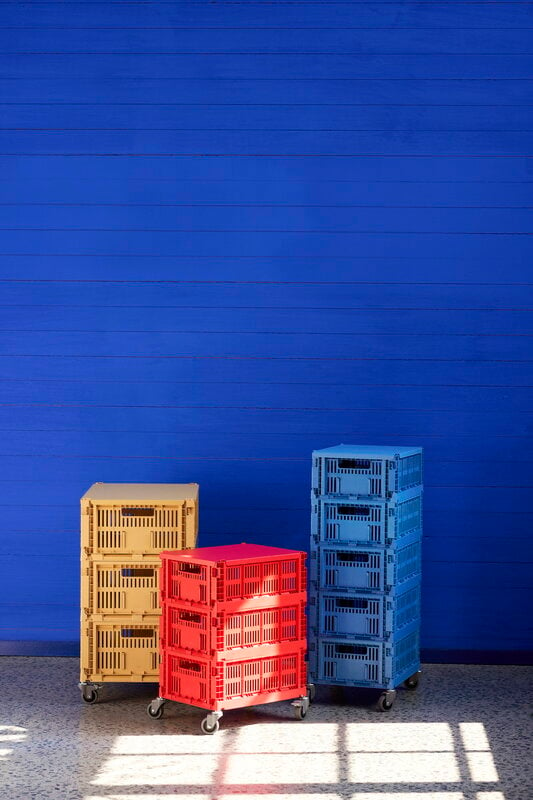Minimize, Reuse, Recycle: Used Plastic Bulk Containers for Lasting Storage Space Solutions
Minimize, Reuse, Recycle: Used Plastic Bulk Containers for Lasting Storage Space Solutions
Blog Article
Maximize Your Recycling Impact by Reusing Utilized Plastic Containers
The impact of reusing can be additional magnified by incorporating the method of reusing used plastic containers (bulk used plastic containers). The opportunities are comprehensive, and the advantages are far-reaching, making the undertaking of taking full advantage of recycling influence via reusing plastic containers a worthwhile and fascinating method to explore.
Advantages of Reusing Plastic Containers
Reusing plastic containers not only lowers waste however likewise contributes considerably to environmental sustainability. By opting to reuse plastic containers instead of discarding them after a single use, people can play a crucial function in decreasing the need for brand-new plastic production. This method straight converts to a decrease in the usage of basic materials, power, and resources required for producing new containers.

Additionally, recycling plastic containers aids in decreasing the volume of plastic waste that winds up in garbage dumps or pollutes our oceans and natural environments. Plastic contamination is a pressing global concern, and by prolonging the life expectancy of plastic containers with reuse, we can reduce the negative influence on the atmosphere. Furthermore, reusing plastic containers can lead to a reduction in greenhouse gas exhausts related to the production and transport of brand-new plastic things.
Fundamentally, the easy act of reusing plastic containers can generate considerable environmental benefits by saving sources, decreasing waste, and lessening contamination, making it a sensible and impactful sustainability practice for individuals and neighborhoods alike.
Innovative Upcycling Concepts for Containers
Thinking about the ecological benefits of extending the life expectancy of plastic containers with reuse, discovering imaginative upcycling ideas provides an ingenious method to additional sustainability initiatives. There are countless inventive methods to repurpose utilized plastic containers, adding to throw away decrease and advertising eco-conscious actions. One creative concept is to change vacant plastic containers into self-watering planters by cutting the top section of the bottle and producing a wicking system using a cotton string. This not just gives a brand-new life to the plastic bottle but also aids in reliable watering of plants. An additional upcycling concept is to use huge plastic containers, such as laundry detergent containers, as storage space containers for items like toys, craft products, or also as makeshift planters for little indoor gardens. By repurposing these containers, people can decrease their environmental impact while adding a touch of imagination to their every day lives. Embracing such upcycling initiatives can motivate others to reassess the means they check out and make use of plastic containers, moving towards a more ecologically pleasant and lasting lifestyle.
Tips for Effectively Cleansing Containers
Preserving cleanliness in containers is essential for making certain hygiene and lengthening their usability. To effectively clean made use of plastic containers, begin by clearing any continuing to be contents and washing them with warm water to eliminate food fragments and residue. For containers with persistent stains or smells, create a blend of equivalent parts water and vinegar or baking soft drink and water, and allow it sit for a few hours before rubbing and washing extensively. Avoid using extreme chemicals or unpleasant scrubbers that can harm the plastic. In addition, ensure to dry out the containers completely prior to keeping them to stop mold and mildew growth. For containers with dilemmas or tiny openings, take into consideration using a bottle brush or toothbrush to get to all locations (bulk used plastic containers). Regularly examine the containers for indications of damage, such as fractures or staining, and change them if needed to maintain correct hygiene requirements. By complying with these cleansing pointers, you can optimize the life-span of your plastic containers and promote a healthier environment.
How to Store Reused Containers Efficiently

Influence of Reusing on the Setting
Recycling containers has a considerable positive impact on the atmosphere by minimizing waste and saving sources. When containers are recycled instead of being thrown out after a single use, it helps in reducing the quantity of plastic waste that finishes up in oceans or land fills. By prolonging the lifecycle of these containers, fewer new ones require to be produced, resulting in a decrease in the intake of resources and energy required for manufacturing. This preservation of resources plays an important role in reducing the environmental impact connected with plastic manufacturing.
By reusing plastic containers, the need for new production declines, resulting in lowered emissions associated with the production and transport of brand-new items. Generally, the ecological benefits of recycling containers are significant and play an important role in promoting sustainability and minimizing the effect of plastic on the earth.
Final Thought
In conclusion, recycling made use of plastic containers can substantially decrease waste and lessen the environmental effect of single-use plastics. By artistically Visit This Link upcycling containers, appropriately cleaning them, and effectively saving them, individuals can optimize their recycling initiatives and contribute to a much more lasting future. Making a mindful effort to reuse plastic containers not only profits the atmosphere yet also encourages a much more environment-friendly way of living overall.
Report this page